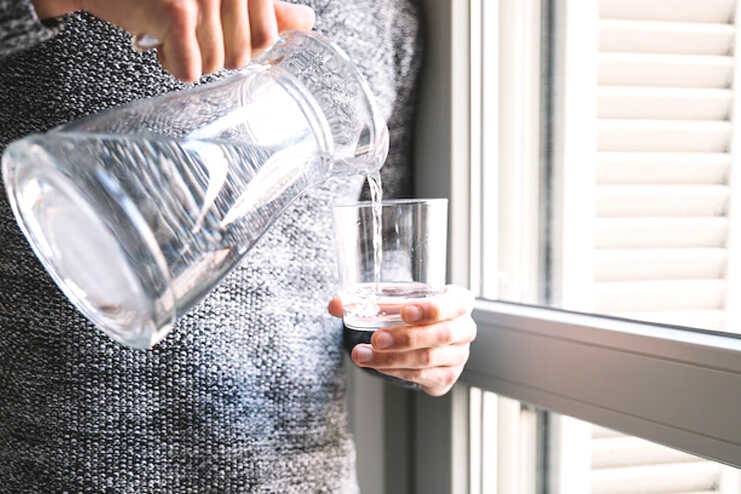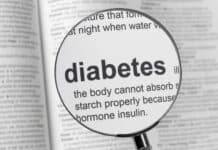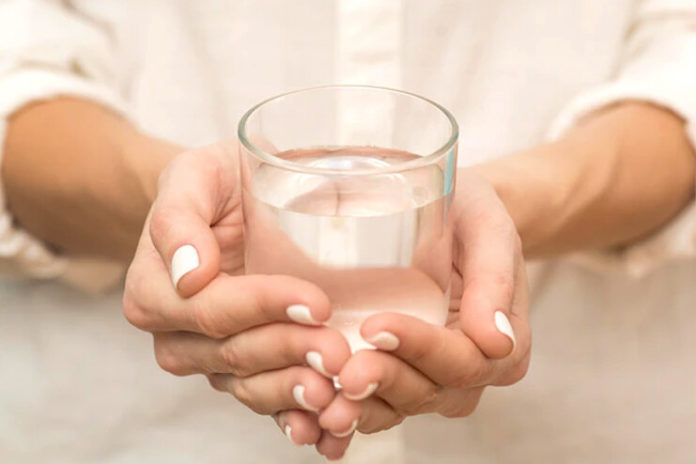Affiliate Disclaimer
Some links in this article are affiliate links. We may earn a small commission if you make a purchase through these links, at no extra cost to you. We only recommend products we find useful to our readersWater fasting has become really popular these days. People who have done water fasting have shown several results that have proven to be positive. Basically, water fasting is an act of restricting food intake and only having water throughout. This method has been practiced for thousands of years by many ancient people. Today this technique has been gaining popularity.
People may practice this technique of water fasting for certain reasons, it may be to lose weight, for spiritual or religious reasons, to ease their body, or to fight certain health issues.
Along with health benefits, there are some side effects of water fasting and it is important to be consciously aware of those. As water fasting is not suitable for everyone and has many health risks. Let us understand everything related to water fasting, keep reading to find out more!
Is Water Fasting Good for the Body
If you are water fasting especially to lose weight it may not be a good option. An ideal balanced diet usually consists of a variety of vegetables, fruits, grains, nuts, seeds, lean meats, beans, legumes, dairy, and low-fat oils; when water fasting all of these healthy food gets excluded. According to USDA guidelines, one must consume all this, and since it does not cohere to USDA guidelines it is, therefore, water fasting is not considered a good for the body (R).
As a short-term diet, only for a few days, you may see some weight loss during a water fast. This happens because when you restrict your caloric intake for 24 hours or more, you will likely experience temporary weight loss. Note that this weight loss is probably in the form of stored carbohydrates and your water weight and it is not actual fat loss. It takes a few days as it uses available energy like glucose and glycogen first for your body to start burning stored fat.
What is Water Fasting?

Water fasting is a type of fast in which one cannot consume anything apart from drinking water. water fast mostly must last 24–72 hours. One must not follow water fast for longer than this without any medical supervision. Let us understand some of the reasons why people do water fasting:
- Detoxing- so that they can lose weight
- Religious or spiritual reasons
- For some of its health benefits
- Preparing for a medical procedure
To improve their health condition, most people try water fasting which is one of the common reasons. Water fasting may also promote autophagy, a process in which your body breaks down and recycles old, unhealthy parts of your cells. In fact, several studies have found that water fasting has some good health benefits, such as it lowers the risk of certain cancers, heart disease, and type 2 diabetes.
However, there are many risks along with benefits and can be very dangerous if water fasting is followed for too long.
Who Should Water Fast
It is safe for people to water fast who are healthy, someone who has never tried water fasting should try it out one day first and see how their body reacts to it. If you feel tired, exhausted, or feel that your body is giving up it is best to stop. Also, it is not recommended for someone below 18 years of age.
Now let us understand who should not water fast in detail below.
Who Should Not Water Fast
Water fasting is not suitable for everyone. One must seek advice from a medical professional before fasting. People who are older adults, and those who are under 18, should not do this. Apart from this, those who-
- People who are underweight
- Have an eating disorder
- Are pregnant or breast-feeding
- Have type 1 diabetes
- Who has a heart problem
- Have severe migraine issues
- Are undergoing a blood transfusion
- Are taking specific medication
Above category, people should check with their doctor before doing water fasting.
Benefits of Water Fasting
There are few benefits of water fasting, but it’s important to note that research on the safety of a water fast is still lacking, and there is yet to have any proper evidence on the same.
Lowers Blood Pressure
Consuming less salt is one of the things that helps to lower blood pressure readings, while another is having water and staying hydrated. A water fast will take care of both of these things, these factors help you to manage blood pressure. Medically (R) supervised water fasts have shown to be effective in lowering blood pressure in patients with borderline hypertension.
Reduces Sugar, and Sodium Intake
It is still not clear if the fasting process itself can lead to positive outcomes. For instance, if one simply reduces their sugar or sodium intake for a few days it may benefit their body. And for those who drink regularly, trying to avoid alcohol for several days can be good for their health and may have weight loss. It can cause a reduction in blood pressure even with no other diet changes.
Promotes Recycling of Cells
Every day, your cells are broken down and recycled. This process is known as autophagy, and it may play a role in preventing cancer, heart disease, and Alzheimer’s disease. Although, there is not enough proof, and is far too limited to know for sure the research (R) on the relationship between water fasting and autophagy in humans.
Lowers Risk of Heart Disease
The evidence that water fasting can help with heart disease is very limited. In one of the studies, 30 healthy people volunteered for 24-hour water fast. During the end of the fast, the participants showed lower levels of two big risk factors for cardiovascular disease triglycerides and cholesterol. Which was noted by the research.
Helps Protect Against Diabetes
Fasting of any type may help to improve insulin sensitivity, (R) as shown by research. The main factor in the development of type 2 diabetes is insulin resistance, so these water fasting techniques can help to improve insulin sensitivity and decrease the risk of diabetes.
How to Water Fast Without Losing Muscle
One does not lose muscle instantly as soon as they start fasting. A person only loses muscle when they are fasting for a long period of time. Hence, as long as you do not fast for more than 24 hours, you do not have to worry about losing muscle. Muscle atrophy is the result of long-term malnourishment, which does not happen just because of a few hours or even a day of fasting.
How Much Water to Drink on a Water Fast
When you are water fasting, you are not allowed to eat or drink anything besides water. It is recommended for people to drink two to three liters of water per day during a water fast. The water fast should last for 24-72 hours, which is the ideal time.
One should not water fast for longer than this without medical supervision due to health risks. It is normal for people to feel weak or dizzy during a water fast. It is best to avoid operating heavy machinery or driving to avoid causing an accident.
Signs You Should Stop Water Fasting
People try fasting to lose weight or for many other reasons. But not everyone can sustain it. A fasting journey can be difficult for some people and for some it can be smooth. Here are a few signs which can help you to understand when you need to stop water fasting.
- Loss of consciousness
- Dizziness
- A feeling of Nausea or vomiting
- Diarrhea
- Chest pain or stomach pain
- A burning sensation in the stomach
- Menstruation
Ways To Safely Water Fast
1. Staying hydrated
Everyone who water fasts are likely to feel dehydrated. About 20 to 30% of the body’s fluid requirements are met by the intake of food, and fasting can alter this. Hence, it is important to stay hydrated while fasting and drink lots of water.
2. Have Additional Supplements
When you fast, your body tends to miss out on a lot of nutrients that are essential for your body. People on a diet are deficient in several nutrients such as calcium, iron, and vitamin B12 (R). So to make up for these deficiencies and have good health after fasting by taking a nutritional supplement after consulting your healthcare professional.
3. Do not have a Heavy Meal After Breaking the Fast
It can be tempting to have a great heavy meal full of your favorite foods while breaking your fast, but that is one thing that you must avoid. Going for a heavy high calorie meal with a lot of food can leave you feeling instantly bloated and tired. Not only that but it will also slow down the weight loss process as it will reduce the calorie deficit
4. Consume More Protein
Consuming more protein is a necessity not only while working out but also when you want to lose fat and build muscles. Increase your intake of protein-rich foods like chicken, eggs, cheese, fatty fish, and nuts (R) during the period you are not fasting.
5. Avoid Intense Workouts During and After Fasting

Your body is low on energy when you are on a diet. That is why it is best to keep your exercises mild. Indulge in intense workouts only on the days you aren’t fasting. After fasting once your body gets used to exercising, you can slowly start trying out high-intensity workouts to increase the utilization of the stored fat in your body. But initially, you need to be gentle on your body.
What to Expect While Fasting
Fasting dispossesses the body of the fuel it needs, so you can expect to feel tired and low on energy. As there is no food in your body it can also make people feel dizzy, weak, or nauseous, and if you face these symptoms in a bad way, it is important to eat something.
Getting more and plenty of rest, sitting down, and avoiding intense workouts can help your body store energy. It is quite normal to feel irritable or tired because of a lack of food, but if someone starts to feel disorientated or confused while fasting, they should seek medical advice.
Tips While Fasting
If someone has not fasted before, one must consider starting with a 1-day fast to try it out, and once you see that there are no adverse effects then continue. Also, fasting for longer than 3 days should only be carried out after seeking the advice of a medical professional. Water fasting can be tiring mentally and physically, so people must carefully prepare themselves, here are some tips for the same:
- While fasting, it is essential to drink enough water. It may be tempting you to drink more water than usual while fasting, but it can be harmful to your body and should be avoided.
- Pick a time that will allow for rest, you can try it when you are not working
- Before the fast eat well, with foods that will help you to boost your energy.
- If you are not well or very tired avoid fasting
- Avoid exercising or going for an intense workout
- Once you break the fast try to reduce the size of meals and slowly consider building up to a fast.
FAQs on Water Fasting
- Can fasting make you sick?
Yes, water fasting can cause dehydration, which may lead to other health problems.
- Is it safe to fast for 3 days?
You can fast safely for 2-3 days without experiencing any adverse health effects (R). But, it is recommended to prepare your body for water fasting by consuming fewer foods before you start water fasting properly.
- What not to eat after fasting?
Avoid eating heavy meals after water fasting. Also cut down on food such as junk foods or other saturated foods after fasting. This will affect your weight loss progress as well as it will disrupt the calorie deficit you have created.
Conclusion
It is true that there are some health benefits to water fasting, and reducing overall calories is also effective if you are trying to lose weight, and is likely to be safer. But along with benefits, there are risks for heart disease and diabetes as well. Also, it may not be suitable for everyone and you may not feel well.
That is when you can stop water fasting and do what is best for your body. hope this article helps you to understand everything related to water fasting. Thank you for reading!
Other Recommended Articles:
In this Article















